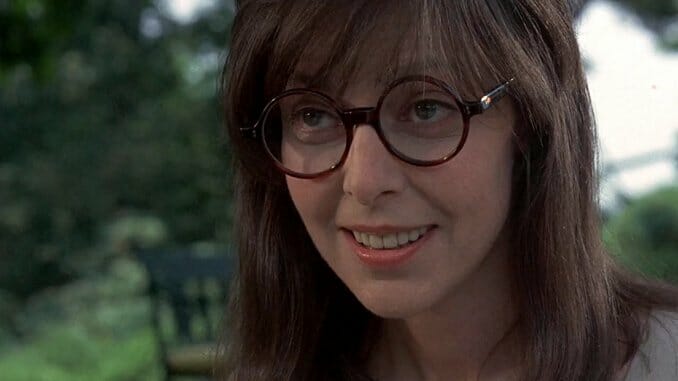A New Leaf Proved Elaine May Was a Filmmaking Triple Threat, 50 Years Ago

Half a century ago, Elaine May didn’t intend to become one of the first women to write, direct and star in her own movie. She’d written the screenplay for A New Leaf, based on Jack Ritchie’s short story “The Green Heart,” and was just hoping to be granted approval of the director and lead actress. Paramount refused, but they did give her the option of filling both positions herself. Although she had never directed before and had only a couple of feature film roles to her name (at this point she was mainly known for her iconic comedy double act with Mike Nichols), she decided to accept.
Leading man Walter Matthau started his career in Hollywood as a perennial villain; he was genuinely sinister in Fail-Safe and Strangers When We Meet, and cartoonishly so in King Creole (which sees him have a fist fight with Elvis!) and Charade. By the late ‘60s however, his villainy had dissipated into the loveable curmudgeonliness that we still associate with him today. The two films he made prior to A New Leaf—Hello, Dolly! and Cactus Flower—showed that even with his hangdog face and general air of grouchiness, he could make a charming romantic lead. In A New Leaf, his charm and villainy are combined, and the result is still magical 50 years later.
The plot is simple. Henry (Matthau), an amoral man devotedly attached to his decadent life of leisure, discovers that his trust fund has run out. The only way to keep himself in the manner to which he has become accustomed is to wed a wealthy woman…and then kill her. He soon lands on Henrietta (May), a sweet, shy botanist with an enormous inheritance and a propensity for dropping things. Unused to any amorous attention, Henrietta is quick to accept Henry’s proposal. The two marry, and Henry starts trying to dispose of his oblivious new wife.
In any regular romcom, we would see Henry gradually fall for Henrietta and ditch his murderous plans in an act of heartwarming grandiosity. Not here. In A New Leaf, Henry is still planning to murder Henrietta up until the final sequence; the passionate finale is more of a grudging admittance of affection on his part.
So is this a romantic movie? Yes—just unconventionally so. Henry may not consciously realize that he’s becoming just a little bit attached to Henrietta, but we do. It helps that he starts from a place of such overwhelming self-involvement. He has no feelings, not even platonic ones, for any other human being (as he says when setting out on his wife hunt, “I can engage in any romantic activity with an urbanity born of disinterest”). The one thing he’s good at, the one thing he loves, is being rich. It’s that love that enables him to grit his teeth, adopt a pseudo-dashing façade and do what he needs to do to be reunited with his beloved riches.
-

-

-

-

-

-

-

-

-

-

-

-

-

-

-

-

-

-

-

-

-

-

-

-

-

-

-

-

-

-

-

-

-

-

-

-

-

-

-

-








































